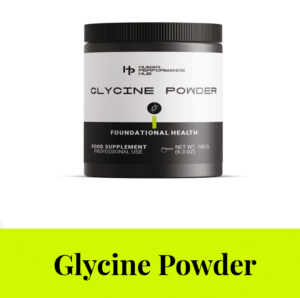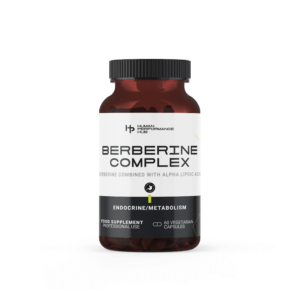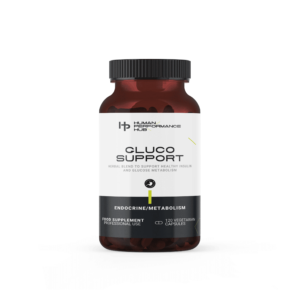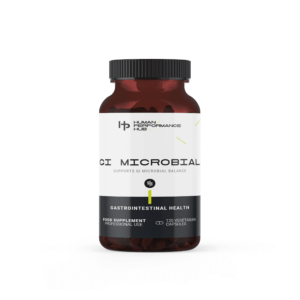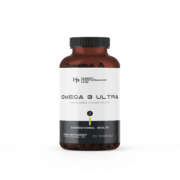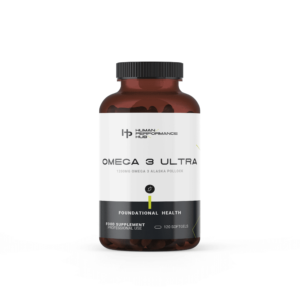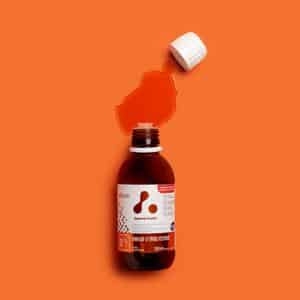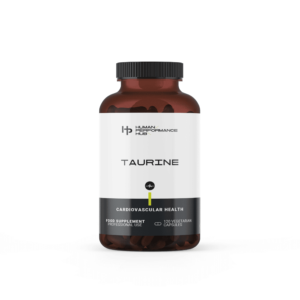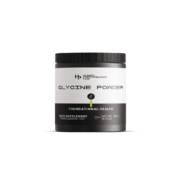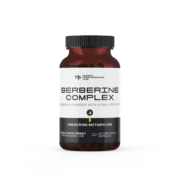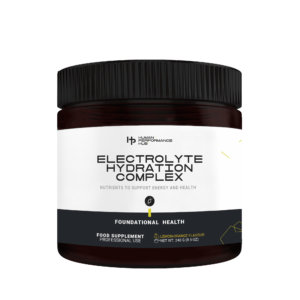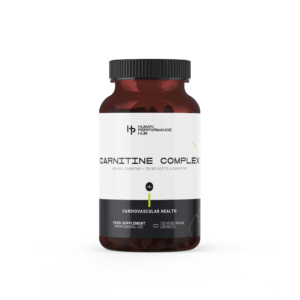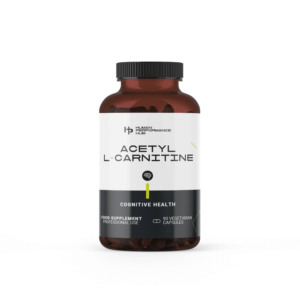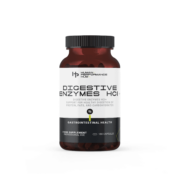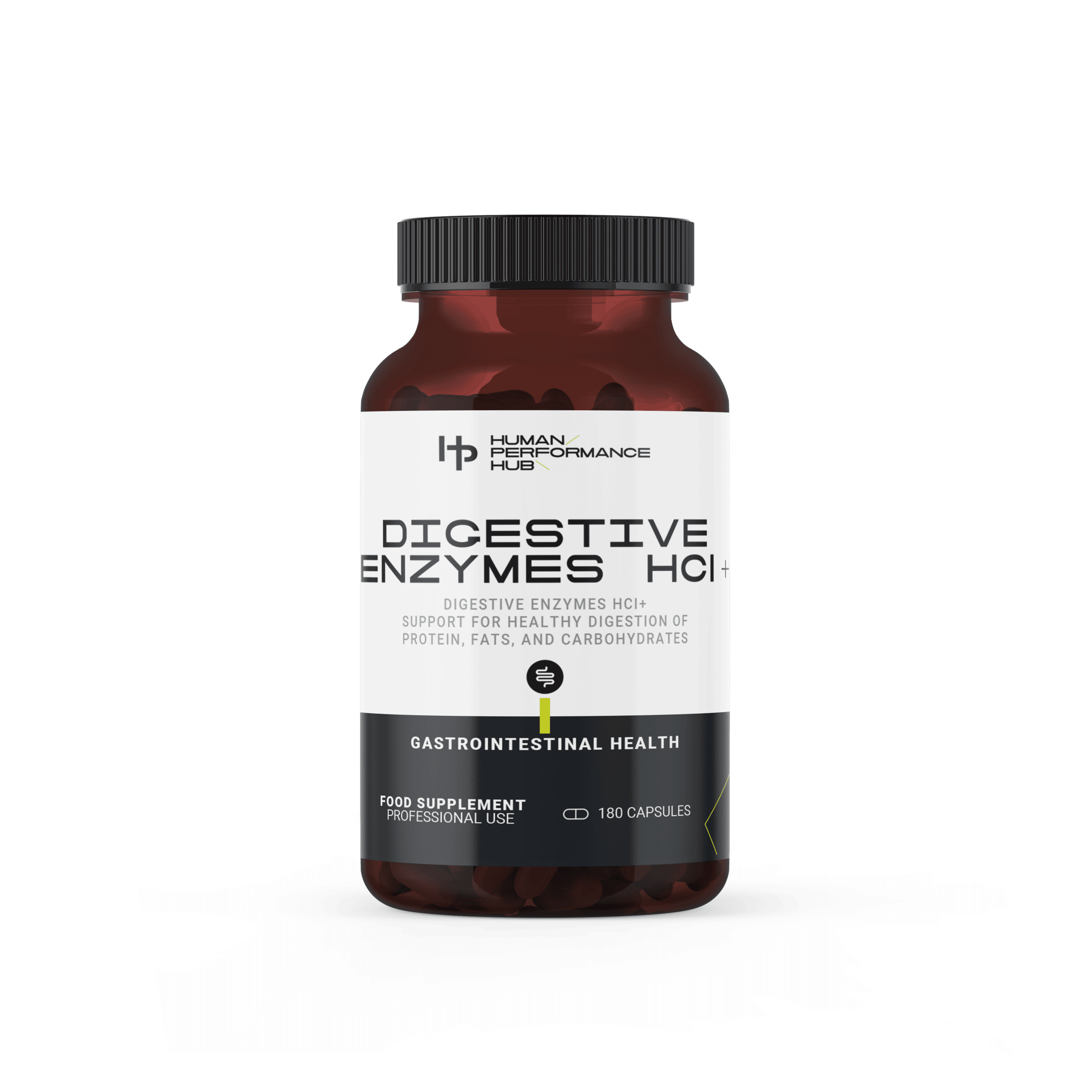If you’re new to the world of supplements, you may have heard rumours of various benefits and side effects. It can be difficult to know where the truth lies. In this blog, we address one of these rumours – whether or not glycine makes you sleepy – and take a look at the wide ranging benefits of this supplement. So, first things first, will glycine make you sleepy?
Glycine doesn’t necessarily make you sleepy, but it is thought to have a number of sleep-related benefits. These include:
- Helping you to fall asleep faster
- Reducing symptoms of insomnia
- Improving overall quality of sleep
Read on to learn more about the benefits of glycine and how to take it with Human Performance Hub.
Will Glycine Make Me Sleepy?
Glycine is an amino acid that helps to maintain strength, support the muscles and bones, and keep your metabolism functioning correctly. It also supports a healthy brain and contributes to a good night’s sleep.
Glycine has a number of sleep-related benefits, but may not necessarily make you sleepy. Here are the key benefits of glycine for sleep:
- Glycine helps you fall asleep faster
- Glycine helps to reduce symptoms of insomnia
- Glycine improves overall sleep quality
Whilst research is limited, it is thought that glycine helps people to sleep better by reducing body temperature. Glycine works to increase blood flow to the extremities which, in turn, reduces core body temperature. This is related to melatonin – a hormone that promotes sleep. Research suggests that this reduction in body temperature can help people to fall asleep faster and spend more time in REM sleep.
Likewise, research suggests that glycine may increase serotonin – a hormone that is involved in sleep regulation. It is thought to help restore healthy sleep patterns, and encourage deeper, more restful and refreshing sleep, even for those with insomnia or those trying to bounce back after a period of disturbed sleep.
Does Glycine Give You Energy?
Glycine plays a part in the creation of creatine, a substance that provides muscles with the energy needed for short bursts of activity. For this purpose, it is particularly popular with athletes. However, it can also provide the brain with the energy it needs for cognitive functions such as short-term memory and reasoning.
Learn more about this in our blog, The Top 7 Benefits of Glycine Powder.
Is Glycine Good for Working Out?
Glycine is good for working out, particularly for those trying to build muscle. It synthesises proteins and plays a vital role in the creation of creatine and collagen – both of which lead to an increase in growth hormone release. This, ultimately, builds muscle. Glycine also helps with muscle recovery, which is key for a sustainable workout program.
Learn more about using glycine for building muscle in our dedicated blog, Is Glycine Good for Building Muscle?
What are the Other Benefits of Glycine?
Aside from better sleep and athletic performance, Glycine has a number of other benefits, including:
- Antioxidant properties – Glycine is one of three amino acids that the body uses to create glutathione. This protects the cells against oxidative damage caused by free radicals.
- Reduced risk of heart disease – A study found that those with higher levels of plasma glycine had a reduced risk of heart attack and a better heart disease profile.
- May aid in diabetes management and prevention – Glycine stimulates a gut hormone that increases the ability of insulin to remove glucose from the bloodstream.
- Protects the liver – Whilst there are obvious benefits to reducing the amount of alcohol consumed, glycine has been shown to reduce the harmful effects of alcohol on the liver by preventing inflammation.
- Impacts mood and memory – A further benefit of increased serotonin, it is thought that glycine improves mood, memory and cognitive thinking.
Learn more about each of these benefits in more detail in our in-depth blog, The 7 Top Benefits of Glycine Powder.
How to Take Glycine
To achieve the benefits mentioned above, we recommend starting with 1 scoop of glycine powder mixed with a bit of water. This should be taken after your evening meal.
If you don’t see any benefit from a single scoop, this dosage can be increased to a maximum of 30g. However, it is very important to monitor how your body responds to the supplement. If you’re unsure, please speak to a qualified practitioner for further advice.
Glycine Supplements from Human Performance Hub
Now you know all about the benefits of glycine and how to take it, take a look at our Glycine Powder supplement. Encourage better sleep, Improve your performance, and boost your cognitive performance. Take a look at our range online today, or get in touch with us for tailored advice.
Consultations
We’re always here to help. If you have any questions or would like advice on nutrition, supplements or training, please book in for a consultation.


